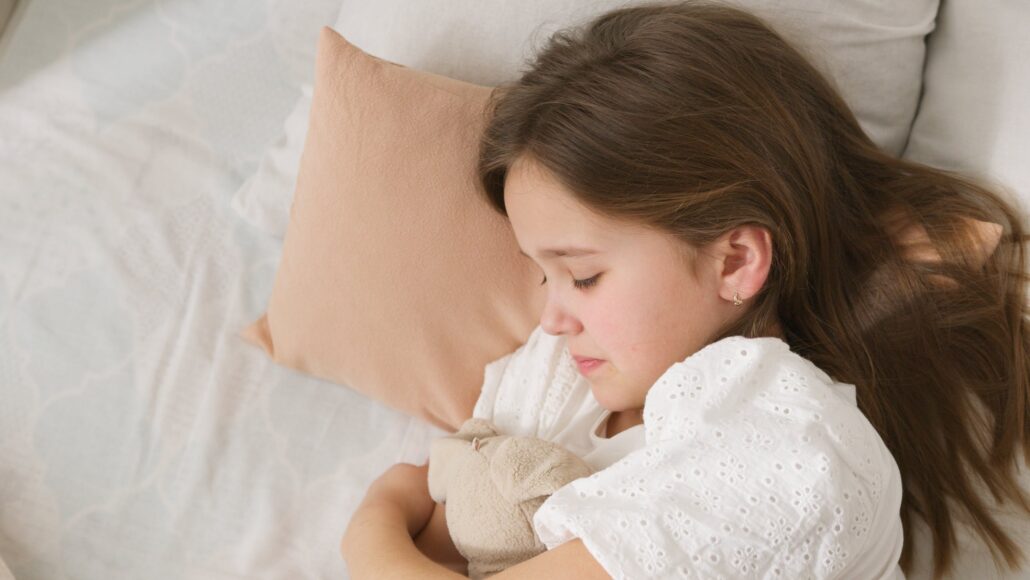
Sleep disorders and autism spectrum disorder
Writer: Hannah Furfaro
Written by : A. Lujain Bin Jadid
Good, uninterrupted sleep is not guaranteed for anyone. But we often find that individuals diagnosed with autism spectrum disorder have difficulty getting good, uninterrupted sleep. It can lead to repetitive behaviors, which in turn may make the sleep cycle more difficult.
Sleep disorders in individuals with autism spectrum disorder are among the most pressing concerns for parents, yet research into sleep disorders is among the least studied aspects of autism spectrum disorder. What researchers know so far is only about the causes and consequences of – and treatment for – sleep disturbances in autism spectrum disorder.
How common are sleep disorders in children with autism spectrum disorder?
A study conducted in 2019 indicated, It is one of the studies that investigated the prevalence of sleep disorders in children diagnosed with autism spectrum disorder. The study indicates that approximately 80% of preschool children with autism spectrum disorder suffered from sleep disorders.
Sleep disorders among children with autism spectrum disorder or other developmental disorders are the same as among children with normal development.
What types of sleep disorders are common in children with autism spectrum disorder?
Children diagnosed with autism spectrum disorder tend to suffer from insomnia, and sleep may usually take an average of 11 minutes, which is longer than that of children with normal development when sleeping. Waking up frequently during the night.
It is also possible for some children to suffer from sleep apnea, a condition that causes them to stop breathing several times during the night.
Children with autism spectrum disorder may spend about 15% of their sleep time in the rapid eye movement (REM) stage. This is important for learning and retaining memories. In contrast, children with typical development spend about 23% of their sleep in rapid eye movement (REM).
Does lack of sleep affect the productivity of children with autism spectrum disorder?
Evidence suggests that poor sleep in children diagnosed with autism spectrum disorder may exacerbate core features of autism spectrum disorder. like, Poor social skills.
When children with autism spectrum disorder do not get enough sleep, they often have more severe repetitive behaviors and difficulty forming friendships than children with other autism spectrum disorders. They obtain lower scores when applying intelligence tests.
However, There is no evidence whether these problems are caused by lack of sleep. Or it may contribute to that, or both may cause behavioral problems.
One 2009 study found that children diagnosed with autism spectrum disorder and sleep disorders may be more hyperactive and easily distracted than individuals who get enough sleep.
Why might children with autism spectrum disorder have difficulty sleeping?
Many children diagnosed with autism spectrum disorder have some other comorbid condition. like: digestive problems, and attention-deficit hyperactivity disorder (ADHD), And anxiety. It is known that any of these conditions may lead to sleep disorders.
also, Abdominal cramps and constipation may contribute to an individual with autism spectrum disorder waking up frequently at night.
As well as sensitivity to light, or sound, or touch, It may affect the quality of sleep, and sleep disorders may also be an indicator of depression in children with autism spectrum disorder. Although it is not clear whether depression is a cause or a consequence of sleep disorders.
Taking medications as a result of conditions associated with autism spectrum disorder has a role in affecting sleep. Example, Many children diagnosed with ADHD take certain medications that can cause their insomnia.
As studies have indicated, In some cases, individuals with autism spectrum disorder may carry genetic mutations that make them more susceptible to sleep disorders than individuals with normal development.
Genetic mutations, in turn, control the sleep-wake cycle or are related to insomnia. Mutations also affect melatonin levels, It is the natural hormone that controls sleep.
How can researchers evaluate sleep disorders in children with autism spectrum disorder?
A polysomnography test can track an individual’s brain waves, eye and limb movements, and breathing patterns during sleep and is one of the most common tests. It requires multiple sensors, wires and computers, It is usually performed in a laboratory.
Performing this standard method is not always practical for children with autism spectrum disorder; Because they need specific bedtime routines. A research group has been conducted by bringing polysomnography equipment into the homes of individuals with autism spectrum disorder to try to overcome this problem.
The actigraphy test is one of the least complicated sleep tests. It is a device that resembles a wristwatch and records an individual’s movements throughout the night. Parents can use the device at home to record the amount of time an individual sleeps each night.
Researchers can also interview families or ask them to record observations of their children’s sleep to learn about different sleep patterns, but these methods can be more error-prone because they rely on individuals’ memory.
Are there some treatments available to help children with autism spectrum disorder sleep better?
Parents or caregivers of a child with autism spectrum disorder can establish daily routines. like, Arrange pre-bedtime activities so the temperature or lighting in the bedroom can be changed. Adhering to a specific routine for sleep and wake times can regulate the brain and body to make sleep on an organized schedule and into a daily routine.
Insomnia medications have been approved by the US Food and Drug Administration. Such as (Ambien), it is used for adults with autism spectrum disorder and is not used for children. For more serious sleep disorders such as daily apnea, Doctors recommend the use of a nighttime breathing device such as a continuous positive airway pressure (CPAP) machine, or surgery in rare cases.
But for many sleep disorders, Melatonin supplements can be a good option. Research indicates that some supplements may help children with autism spectrum disorder sleep faster and better.
Will good sleep improve the quality of life for children with autism spectrum disorder?
Answer: Not exactly sure, There is no definitive study clarifying this topic.
However, research indicates that typically developing children with autism spectrum disorder who undergo surgery to relieve sleep breathing problems show better social communication and attention, as well as significantly reduced repetitive behaviors.
A small study was conducted that included taking melatonin supplements for children with autism spectrum disorder, and the results showed a high level of improved sleep, as reported by parents.
“Better sleep will not improve autism spectrum disorder,” said pediatrician Angela Maxwell Horn, assistant professor of pediatrics at Vanderbilt University in Nashville, Tennessee. But it appears that children with autism spectrum disorder who have a regular sleep schedule and routine may learn better, in terms of less frequent agitation and behavioral problems.
Reference:
Sleep problems in autism, explained | Spectrum | Autism Research News (spectrumnews.org)
